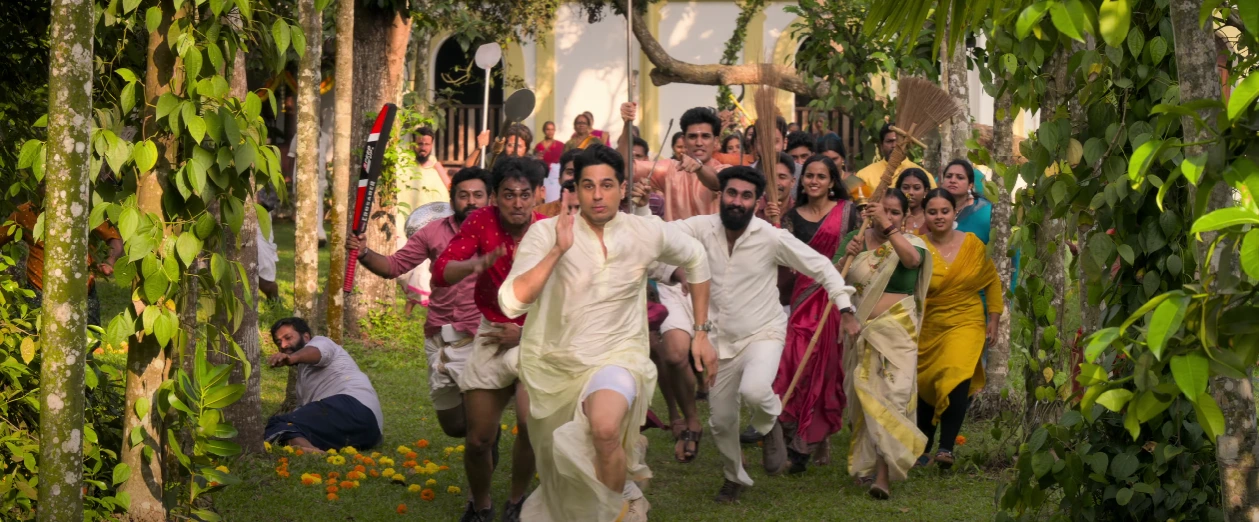Today, we live in a world where people are quick to judge. If you’re born in a certain family, wear certain clothes, or even cheer for a different team, people slap a label on you. “Oh, he’s from that religion, so he must think like this.” Or, “She’s from that caste, so she must act like that.” It’s gotten so bad that even if you say something kind about another group, people raise eyebrows and whisper, “Maybe your ancestors were like them.” It’s exhausting, isn’t it? We’ve built walls between us—walls of caste, religion, and even personal likes. But there’s a movie that quietly breaks these walls with a simple, beautiful truth: Dharm, directed by Bhavna Talwar.
A Story That Questions the Meaning of Religion

Released in 2007, Dharm is a Hindi film set in the holy city of Benares. It tells the story of Pandit Chaturvedi (played by the brilliant Pankaj Kapur), a respected Brahmin priest who lives by strict religious rules. One day, a baby is abandoned and brought to his home. His wife, Parvati (Supriya Pathak), and daughter, Vedika (Ananya Tripathi), convince him to adopt the child.

The family grows to love the little boy, naming him Kartikeya. But then, everything changes. The boy’s mother returns. She explains she lost him during violent riots between Hindus and Muslims.

The twist? The boy is Muslim. Suddenly, Pandit Chaturvedi feels betrayed—not by the child, but by his own beliefs. He hands the boy back and spends days “purifying” himself, thinking he’s been “tainted” by raising a Muslim child. But soon, the boy runs back to their home, scared and alone, chased by a mob during another riot. In that moment, Pandit Chaturvedi sees the truth: religion isn’t about rules or labels—it’s about humanity. The movie ends with a powerful line: “Dharm is not just penance and practice. Dharm is unity, humanity and brotherhood.”

Why “Dharm” Feels So Real Today
Imagine if Dharm came out today, in 2025. We’re still fighting over religion and caste. Social media would explode. Some might call it “too woke” or “anti-Hindu” because it challenges strict traditions. Others might say it’s “not bold enough” for not picking a side. But that’s the beauty of Dharm—it doesn’t take sides. It asks us to look inside ourselves. If this movie dropped now, it could spark big debates. Some would cheer its message of unity, while others might dig into the story to argue about “hidden agendas.” Just like when people watched Chhava recently and started hunting for historical treasure instead of soaking in its bravery, many might miss Dharm’s real lesson.

But here’s the thing: we need this movie today. We’re so busy judging—by names, families, even hobbies—that we forget what matters. Dharm reminds us that your religion isn’t where you’re born or what you’re taught—it’s what you do. If you help someone, if you show kindness, that’s your true “dharm.”
A Picture That Can Change You

A single film can shift how you see the world. Dharm is that kind of movie. It’s not loud or flashy—it’s quiet, like a friend telling you a story by the river. When Pandit Chaturvedi protects that little boy from the mob, you feel his fear turn into courage. When he realizes “dharm” is about love, not rituals, you want to cheer. This isn’t just a film for adults; it’s for everyone: don’t hate, don’t judge—help.
A Film That Deserves a Re-Release

In a world where people continue to fight over religion and caste, Dharm is a film that needs to be re-released. It is not just a movie; it is a lesson in humanity. The film beautifully conveys that true religion is not about rituals but about one’s actions (Karma). It challenges the idea that faith is something we inherit at birth—it is something we practice through our deeds.
One of the most emotional moments in the film is when Pandit Chaturvedi realizes that his years of religious practice have not taught him as much as the innocent love of a child has. The boy, who knew nothing of religious divisions, became the very reason Chaturvedi understood the true essence of Dharm—which is love, kindness, and acceptance.
Why ‘Dharm’ Stands Out Among Indian Films on Religion
Many Bollywood movies have explored religion, but Dharm stands apart because it does not criticize any particular belief—it simply questions the way people interpret religion. Unlike commercial Bollywood films that use religion as a backdrop for drama, Dharm takes a philosophical and emotional approach, making the audience reflect on their own beliefs.
The film’s minimalist storytelling, breathtaking cinematography of Benares, and outstanding performances make it a masterpiece. Pankaj Kapur’s performance is nothing short of legendary, capturing the emotional turmoil of a man torn between tradition and humanity.The film won the prestigious Nargis Dutt Award for Best Feature Film on National Integration at the 2007 National Film Awards and was even showcased at the Cannes Film Festival. Yet, despite such recognition, it remains an underrated gem that deserves more attention.













